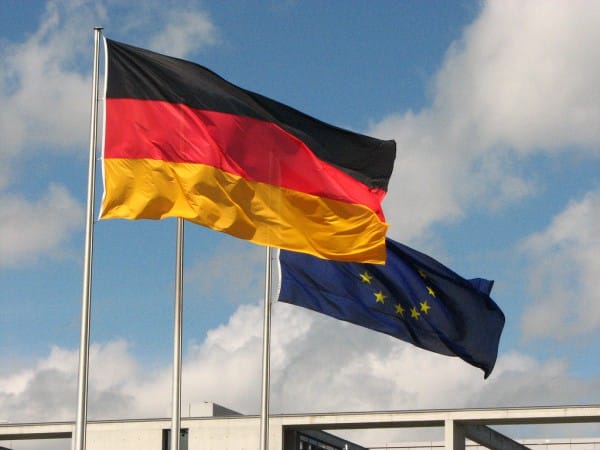
25 years after the fall of the Berlin Wall, and 24 after unification, the German government has declared its intention of gaining a more active role in the world for Germany. To be more precise: those who have such an ambition are the Ministers of Foreign Affairs (Frank-Walter Steinmeier, a Social-Democrat) and Defence (Ursula von der Leyen, a Christian-Democrat), in addition to President Joachim Gauck, a leading point of reference. Steinmeier himself has launched a review of German foreign policy that, without being mould-breaking, is likely to reflect that greater ambition.
It is an ambition that comes up against a number of obstacles. First, the people do not buy it, unlike a few years ago when Germany’s citizens were at the forefront of demands for a more wide-ranging external action and it was the government that dragged its feet. According to a survey by the Körber Foundation, 60% of Germans believe that their country should continue to exercise restraint in the field of foreign policy, while 37% called for greater involvement. This is the exact opposite of the situation two decades ago.
Secondly, while business (and not just major enterprises) and even society are now globalised and think in global terms, the political and media debate has become more national-oriented, even parochial, and also far more focused on parliament.
Third, Europe (the EU) is a central framework for German politics but it is becoming too small, both as a market and in terms of support from a European Foreign and Security Policy that does not work. If in 2001 45% of Germany’s exports were directed at today’s Eurozone, by 2013 the figure had dropped to 36%. There is no fervent Europeanism in Germany. The euro is an anchor (although challenged by the Alliance for Germany, which has a significant capacity for muddying the waters) and the idea is to make it more secure, especially since a return to the Deutsche Mark could be very costly. But as of today the German ministers in the coalition government, with the possible exception of Schäuble, see it neither necessary nor desirable to embark on a reform of the treaties. It would appear that European policy is dictated more by the Constitutional Court in Karlsruhe than by either the government or parliament. Care should be exercised, because if Europe fails to wake up to the facts, Germany will slip out of its fingers under the pressure of global circumstances.
Nevertheless, Germany’s global ambitions require global partners. The relationship with China is mainly economic and trade-related (Germany accounts for 47% of EU exports to China), not political. Business is also looking further afield, towards India, Brazil and other markets. Berlin, following a long tradition, placed a lot of faith on Russia, even to the extent of hoping to change it through a closer relationship, although following the invasion of the Crimea and the war in the Ukraine it had to distance itself from Moscow, a cooling-off that may be a lasting one. Again, this runs counter to the German people who, following a long tradition, want good relations with Russia, including Putin in the package.
This leads to the fourth factor: relations with the US, ‘the most difficult for Germany’, according to a German official. The Snowden leaks regarding NSA spying –even on Chancellor Merkel’s cellphone– have cooled relations off markedly. Germany is seeking ‘technological sovereignty’ in the field of information and communication technologies (ICTs), and believes that its enterprises can provide it. To this should be added the cultural change in Germany since 1989. As a German analyst suggests, from 1949 to the present day, official culture was clearly pro-American. But this is not necessarily so for the younger generation, which has been brought up in a more autonomous framework. The Transatlantic Trade and Investment Agreement (TTIP), currently under negotiation between the EU and the US, is being questioned on the grounds that it might weaken consumer and investment protection. Parliamentary and media noise are hindering the improvement of relations with the US.
German foreign policy, according to a European observer, expresses itself more in terms of wills than realities. The reality is that Germany has a relationship with the US that is far more intense than with other Western countries. In fact, the Ministry of Foreign Affairs has just appointed a coordinator for US relations, a privilege previously only applied to France. For despite these problems, Germany needs its relations with the US for its global ambitions, and the proof is its promise to send weapons to Iraq to fight the Islamic State. 25 years after the Wall fell there is a new Germany, ready for more international responsibilities. ‘Responsibility’ is a buzzword in the German debate. Although, as President Gauck has said, ‘it is never easy to put into practice the principle of responsibility, not only in one’s life, but also in society, in an expanded European and global dimension’.


